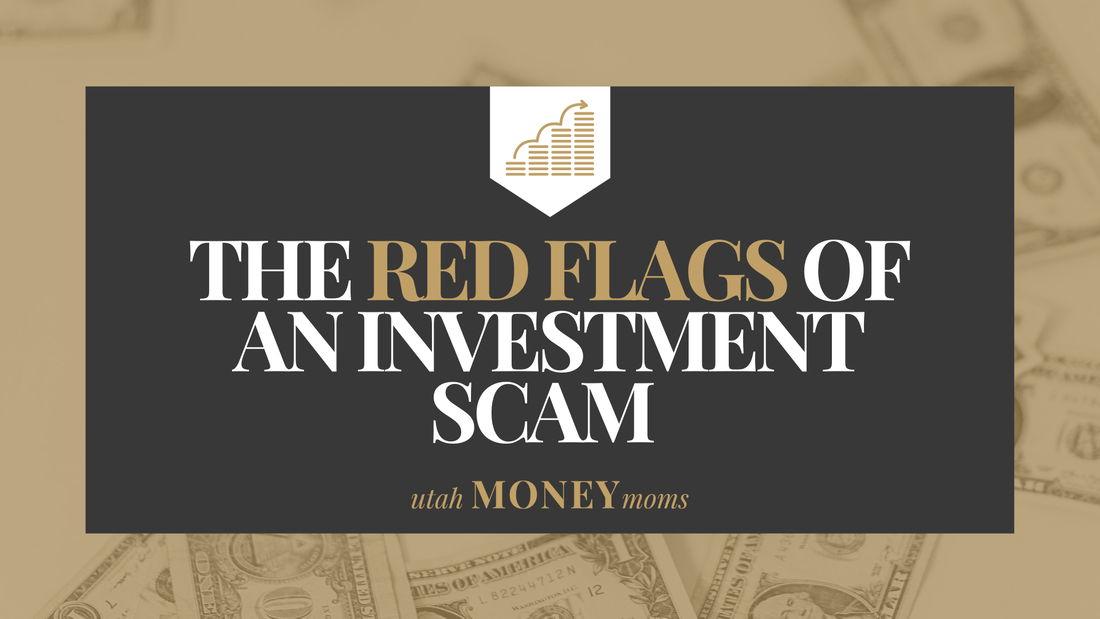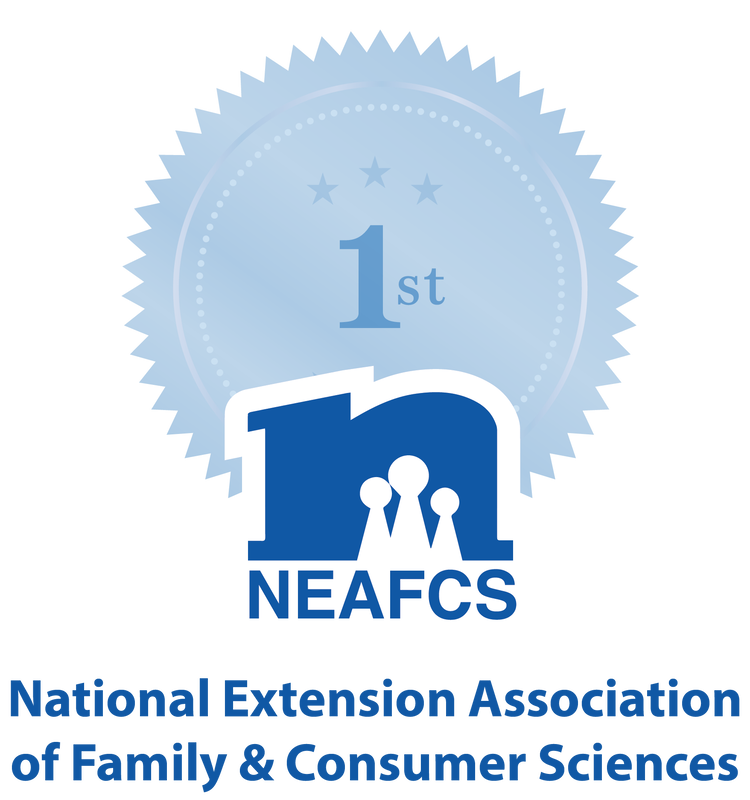|
KristiLyn Wilkinson, AFC Candidate, Empowering Financial Wellness Program Manager  Here at Utah Money Moms we spend a lot of time telling you how to save your money, increase income, decrease expenses, spend according to your financial values, and reach your financial goals. Unfortunately, if you lose your hard earned money in an investment scam that work is all for nothing. We need to be smart about saving, spending, and growing our money! I worked for four years as a securities fraud investigator for the Utah Division of Securities. This Halloween season I don’t want to scare you away from investing, or create fear surrounding money, I want to arm you with the tools to make good financial decisions surrounding the money you invest! The following items are some red flags/things to be aware of to help you avoid investment scams! The number one rule that every scammer breaks 100% of the time is the risk/reward relationship rule. That rule goes something like this. If you are seeking higher returns, you are going to take on more risk. Lower rates of return are associated with lower risk. If you have a neighbor, friend, family member, church member, coworker, etc. offer you an investment and say that the investment is offering a high return with very little to no risk, it’s a scam. I promise. 100% of the time. Always. Always. A SCAM. They might not be intentionally trying to scam you, but the investment is going to turn out to be a dud, or else you are going to end up taking on significant risk for those high returns you are chasing. I promise. Do you believe me yet? Far greater minds than your neighbor, friends, or family members would have figured out a long time ago how to break this risk/reward relationship if there was a way. Just know that if someone is offering you a high rate of return, there is absolutely going to be a high level of risk involved. Don’t invest all of your life savings in high risk investments! That’s not a sound financial decision. This dovetails nicely into the concept that if it sounds too good to be true. It is. For reals.
The second thing to watch out for is an unsecured promissory note. What is a promissory note? Well, it’s basically a note, with a promise to pay you money and some sort of return at some point in time, in exchange for you handing over your money to someone right now. Here is the thing, promissory notes are securities/investments. If someone is offering you a promissory note, they may need to be licensed. Because a promissory note is a security, there are also legal disclosures that need to accompany that promissory note. Most likely your neighbor, friend, or family member that is asking you for money to help start their business and issuing you a promissory note doesn’t have any of those appropriate things in place. IMPORTANT NOTE: See how I put that in caps so you don’t miss it? It’s because this is important. During my time at the Division of Securities, I learned that most “investment scams” don’t start out in someone's mind as an investment scam. Most of your family, neighbors, and friends aren’t out to steal all your money and ruin your life. What happens though is that things go south with some sort of business deal, and instead of owning up to it, they throw good money after bad- usually from new investors. Many investments start out with good intentions, but end up as scams because proper licenses and disclosures aren’t in place and the deal never ends up making people money. The last red flag has to do with affinity fraud. Affinity fraud is a fraud that targets people belonging to a specific group or community. Utah tends to lead the nation in investment scams because we have a large population that shares similar religious and cultural beliefs. You wouldn’t trust your neighbor or church member to perform open heart surgery (or any surgery really) if they weren’t a licensed medical doctor. Why do we trust our neighbors and friends with our money- especially when they don’t have the appropriate licenses? If someone ever tries to get you to invest based on a spiritual experience they had, or because you attend the same congregation and believe the same things, run away. Like as fast as you can. With both your legs. Don’t just hobble along on one leg. Use both legs, and run. If their selling point of the investment is their religious affiliation to you, or they lead into why you should invest by making this connection, just say no. Like you did back in 5th grade DARE when you learned how to say no to drugs. Reputable, licensed, experienced, and legitimate investment advisors don’t need to rely on a religious connection with you. They have the credentials and experience to back up why you might want to invest with them. If I’m being real, some of the biggest cases I saw during my time at the Division were perpetrated by bishops, stake presidents, and even primary presidents. If anyone is selling a security, they need to be licensed. You can check if an individual has the appropriate license by calling your state Division of Securities and by looking at FINRA’s broker check website. You will need to have their name or CRD number. You can also use this Scam Meter from FINRA (a securities industry regulator) to answer some questions about the investment you are considering to see how likely the investment is to be a scam! There you have it. Avoiding investment fraud is not “as simple as that.” But it almost kind of is. Do your due diligence, and if you heed this advice, I would bet that you avoid investing in almost 100% of the scam opportunities that cross your path. If you are skeptical of that kind of guarantee- good job! You got a lot out of reading this blog post! Now apply this counsel and see if I’m not right! May you retire healthy and wealthy with all your hard earned money! Sources:
0 Comments
Your comment will be posted after it is approved.
Leave a Reply. |
TAKE A FREE CLASS!Host a ClassamandaSharing real-life money smarts to help you stay on track with financial goals while still enjoying life! Follow the fun on InstagramAS SEEN ONawardsBest of State 2022 & 2023: Personal Finance Education
1st Place National Award in Social Media Education from the National Extension Association of Family and Consumer Sciences
Gold Award in Blog Site category at the 7th annual Education Digital Marketing Awards.
Platinum Award in Digital Media, Web Design category at the International Marketing and Communication Awards.
Categories
All
|








